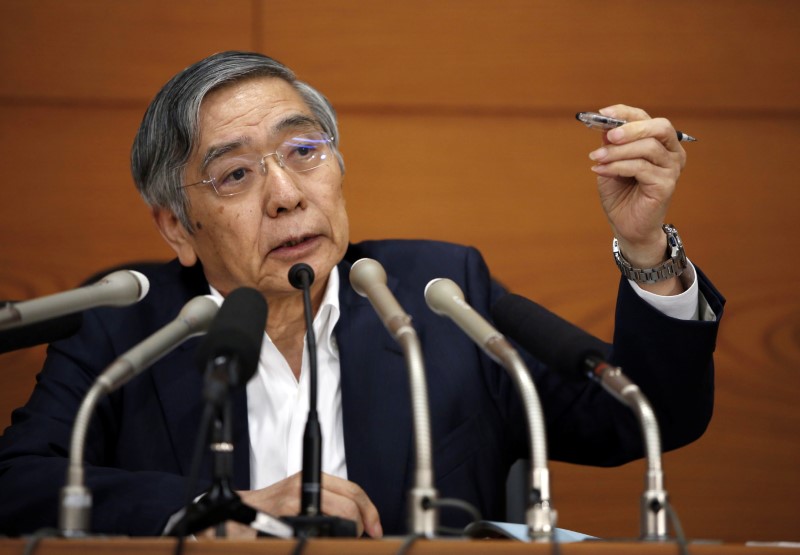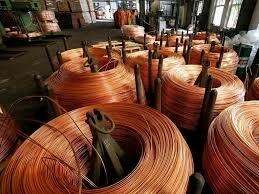 © Reuters. Bank of Japan Governor Haruhiko Kuroda attends a news conference at the BOJ headquarters in Tokyo
© Reuters. Bank of Japan Governor Haruhiko Kuroda attends a news conference at the BOJ headquarters in TokyoBy Scott and Squires
BUENOS AIRES (Reuters) – Bank of Japan Governor Haruhiko Kuroda issued a plea on Saturday
for leaders of major economies to step back from a tariff war, and said stable currency markets were to everyone’s benefit.
Kuroda spoke on arrival at a meeting of Group of 20 finance leaders, in response to questions on assertions from U.S. President Donald Trump that Europe and China were manipulating their currencies in favor of their economies.
“It is most desirable for currencies to move stably and reflect economic fundamentals,” Kuroda said. “This is something we have already reached agreement about at Group of 7 and at G20 (level).”
Kuroda also sent hoped debate at the G20 would lead to an easing of retaliatory tariff increases between the United States and China.
“Trade protectionism poses merits to no one involved. I think restraint will eventually take hold,” he said.
Trump has broken with precedent in his presidential role in recent days with comments criticizing the dollar’s strength and the monetary policies of the U.S. Federal Reserve and central banks in China and Europe,
He tweeted on Friday that Fed rate hikes were taking away the U.S.’ “competitive edge” in exports.
Trump’s comments have sparked concern that currencies will become a new battle ground in the simmering trade war.
But, arriving in Buenos Aires, U.S. Treasury Secretary Steven Mnuchin told reporters that Trump was not trying to intervene in currency markets.
The subject is particularly sensitive for Japan because its central bank, under Kuroda’s leadership, has pursued a massive quantitative easing program to spur inflation.
After five years of easing, the BOJ’s attempts to push up inflation have produced minimal results. But the yen has steadily weakened, which could lay Japan open to criticism from its trading partners.
The United States this month imposed 25 percent tariffs on $34 billion of Chinese goods to lower the U.S. trade deficit, and China quickly retaliated with an increase in tariffs on U.S. goods.
Trump has imposed tariffs on imported steel and aluminum, a blow to Japanese exporters, and has also criticized Japan for its trade surplus and the small number of American vehicles it imports.
Asked about reports that the BOJ would debate at this month’s rate review whether to make its yield curve control (YCC) policy more flexible, Kuroda said: “It’s inappropriate to say anything predictive on the outcome of the meeting.”
Reuters reported that the BOJ, facing stubbornly low inflation, is in unusually active discussions before this month’s policy decision, with changes to its interest-rate targets and stock-buying techniques on the table.
Fusion Media or anyone involved with Fusion Media will not accept any liability for loss or damage as a result of reliance on the information including data, quotes, charts and buy/sell signals contained within this website. Please be fully informed regarding the risks and costs associated with trading the financial markets, it is one of the riskiest investment forms possible.
Source: Investing.com




























